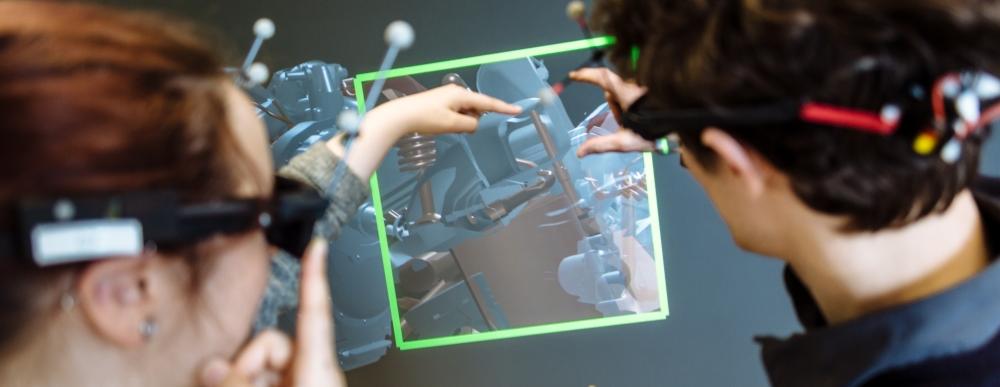


The use of digitally connected systems is increasing in every industry. The developments currently unfolding under the buzzword "Industry 4.0" are essentially based on the comprehensive digital representation of every step in the value chains in industrial production. From the planning phase through to the design/draft and production process to monitoring products (incl. built infrastructure) over their service-life, virtual product and process models are networked with each other to expedite development processes, raise product quality, and optimise production. That is why these developments require well-trained specialists at the interface of computer science and engineering. This course of study, which was jointly developed by participants from the professorships of Civil Engineering, Computer Science and Media at the Bauhaus-Universität Weimar, is designed to provide you flexible and interdisciplinary training to meet the challenges you’ll face in the professional world of tomorrow. The Digital Engineering Master's programme places a high premium on introducing you to current research issues that can be jointly defined and supervised by industry partners at an early state. The Digital Bauhaus Lab is a state-of-the-art university research facility offering optimal conditions for success.
The consecutive Digital Engineering Master's programme combines academically specialised expertise from the Civil Engineering and Computer Science and Media disciplines. The coursework is centred on a practical transfer of methodical interrelations between engineering and computer science for complete digitalisation of design, manufacturing, and application processes. In this international Master's programme you will use a range of modelling concepts as a basis for experimentation with complex processes in computer-aided modelling, simulation and visualisation of engineering problems. In addition, you will deepen your knowledge of information-theory methods of data generation and data handling. The aim is the representation, interpretation, evaluation, and optimisation of interdisciplinary processes in construction, mechanical engineering and other industrial fields. Following the long Bauhaus tradition, projects, use cases and methods for digital civil engineering move into focus. However, the underlying principles and concepts are generally applicable for Industry 4.0.
This prepares graduates of the English-language Digital Engineering Master's programme in a targeted way for work in the field of virtual product and process modelling and optimisation. They are active in a diverse range of fields such as technical administration, model management, engineering analysis and consulting, technical data analysis, as well as software and product development for digital networking in industry.
Changes from color to monochrome mode
contrast active
contrast not active
Changes the background color from white to black
Darkmode active
Darkmode not active
Elements in focus are visually enhanced by an black underlay, while the font is whitened
Feedback active
Feedback not active
Halts animations on the page
Animations active
Animations not active